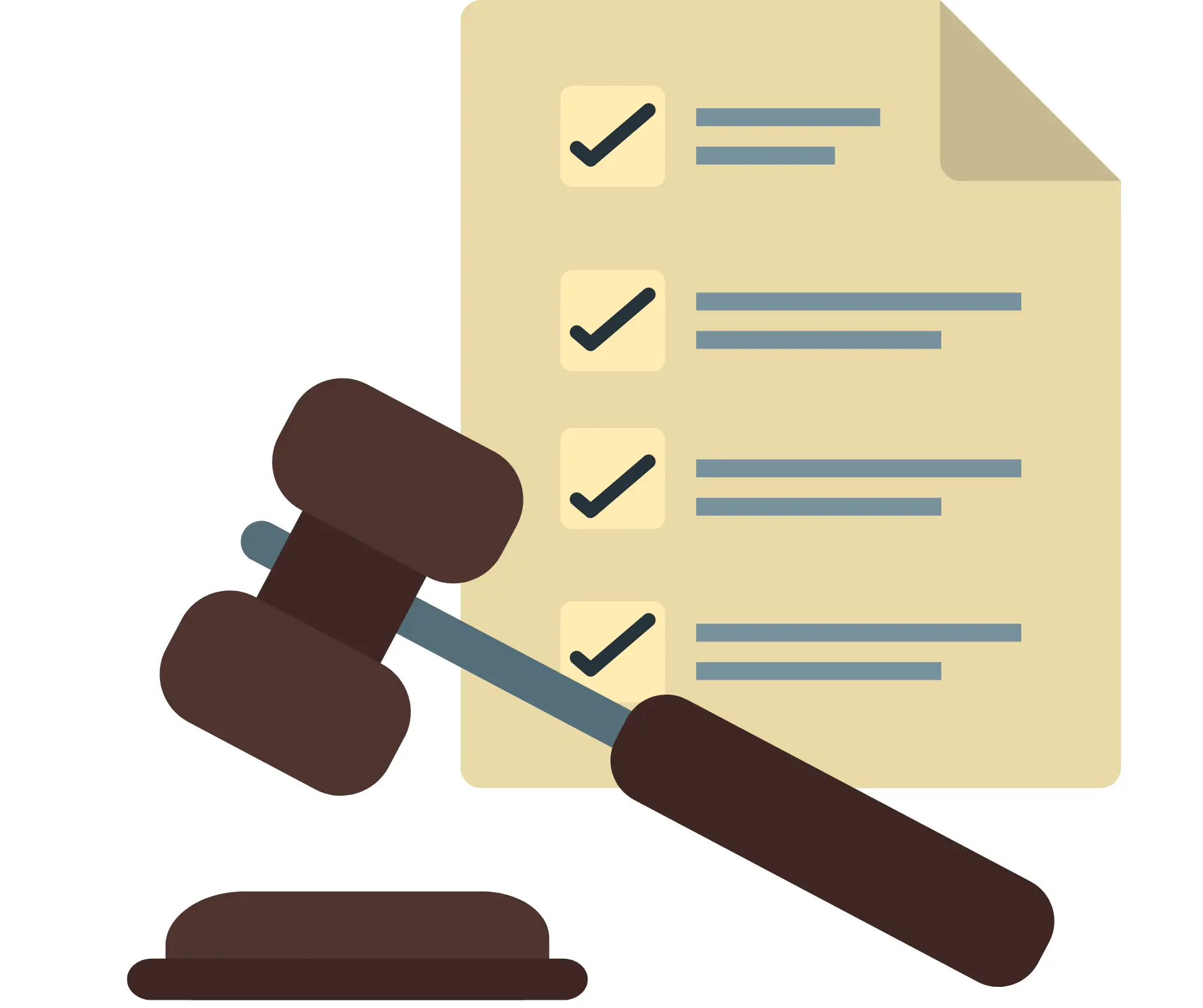Malcolm ZoppiSun Oct 15 2023
Social Media Laws for Employers: Key Regulations and Compliance Guide
How do employers navigate the challenges of managing social media use by their employees? Learn more.
Social Media Laws for Employers: Key Regulations and Compliance Guide

In today’s digital age, social media has become an integral part of everyone’s lives, including in the workplace. Employers must navigate the challenges of managing social media use by their employees to maintain a healthy work environment and ensure company reputation stays intact. With countless platforms available, it’s essential for organisations to have a comprehensive understanding of company social media policies and legal implications when approaching this potentially sensitive topic.
Having a well-defined social media policy is essential for businesses in order to set guidelines for employees’ online behaviour. This policy should cover the consequences for posting inappropriate or harmful content, as well as outline how it may impact the company’s image or other employees. Additionally, employers should be aware of legal aspects surrounding social media policies, ensuring that they understand their responsibilities when enforcing these guidelines and protecting their employees’ rights.
Key Takeaways
- Employers need to manage social media use in the workplace to maintain a positive work environment and protect company reputation.
- A clear and comprehensive social media policy is critical for outlining employee guidelines and consequences for inappropriate behaviour.
- Understanding the legal aspects and responsibilities surrounding social media policies helps ensure employers protect their employees’ rights and avoid potential liabilities.
The Importance of Social Media in the Workplace
Influence on Brand Image
In today’s digital era, your company’s presence on social media platforms such as Twitter and Facebook play a significant role in shaping your brand image. Your employees’ online behaviour can either enhance or tarnish your company’s reputation. Thus, it’s crucial for employers to establish guidelines regarding employees’ social media use, both within and outside the workplace.
By implementing a well-crafted social media policy, you can empower your employees to represent your company positively and protect your brand image from any potential damage. This policy should include clear instructions on what is acceptable and unacceptable when it comes to posting content online, interacting with customers or social media users or engaging with each other on social media platforms.
Communication and Collaboration
Social media has brought remarkable changes to the way we communicate and collaborate in the workplace. It has become an essential tool for sharing ideas, insights and updates with colleagues, stakeholders, and clients. Employers can leverage these platforms to foster teamwork, enhance organisational learning and improve productivity.
However, while social media offers multiple benefits in the workplace, it’s important for you as an employer to be aware of the potential risks and challenges it may pose. Issues such as privacy concerns, cyber-security threats, and the implication of online safety laws should be taken into account when formulating your company’s social media policy. Ensure that your employees are well-versed in the guidelines so that they can maintain a balance between the effective use of social media for work-related purposes and their private lives.
Effects of Unregulated Social Media Use

Risks to Security
Unregulated social media use can pose significant risks to your company’s security. Employees may inadvertently share sensitive information about your employer’s business, clients, or even fellow staff members, which can lead to data breaches or violations of privacy. Furthermore, unauthorised access to, or sharing of, company’s intellectual property puts your organisation’s assets at risk. It’s essential that your employees are aware of their responsibilities when using social media and that they understand the potential consequences of misuse.
Potential for Harassment
The widespread use of social media also presents a risk of harassment, both in and out of the workplace. Disrespectful or offensive content, such as discriminatory language or inappropriate comments, shared by employees can lead to an unhealthy work environment and even online bullying. Employees must be reminded to adhere to your company’s values and treat their colleagues with respect, irrespective of the platform. Ignoring this behaviour can result in legal repercussions and damage to your organisation’s reputation.
By setting clear guidelines, monitoring online interactions, and providing training on proper social media etiquette, you can mitigate the risks associated with unregulated social media use and create a safer, more professional online presence for your company.
Creating an Effective Social Media Policy
Outlining Expectations
In order to create an effective social media policy, it’s essential for you as an employer to outline the expectations for your company policy and employees on social media. Clearly state the purpose, goals, and mission of your company’s social media presence, as well as the professional responsibilities of your employees.
Specify the approved platforms and any limitations on usage, such as time spent on social media during working hours. Set out behavioural expectations by reiterating the need for professionalism, respect, and consideration. Emphasise the importance of protecting company information and intellectual property.
Mitigating Risks
To mitigate risks associated with social media usage, your policy should address the potential consequences of violating the rules. Explain the monitoring process and the guidelines for reporting inappropriate behaviour or content. Establish clear disciplinary procedures in case the policy guidelines are breached.
Incorporate the following in your social media policy to cover most of the relevant aspects:
- Rules: Be specific about what is acceptable and what is not, including clear examples of prohibited behaviour.
- Mission: Ensure that the policy aligns with your company values and overall objectives.
- Professional responsibilities: Make it clear that employees represent the company when using social media, and their online actions can affect its reputation.
- Consequences: Specify the potential outcomes of failing to comply with the policy, such as warnings, suspension, or even termination of employment.
- Monitoring: Let employees know that their social media activities may be monitored for compliance with the policy.
- Guidelines: Provide resources, tips, and best practices to help employees navigate social media usage both professionally and personally.
- Disciplinary procedures: Outline the steps that will be taken if the policy is violated, such as investigation, escalation, and potential penalties.
By implementing an effective social media policy, you can help protect your company and employees from any legal issues and reputational risks while promoting a positive online presence.
Enforcing the Social Media Policy
Disciplinary Procedures
To maintain a professional and responsible work environment, as an employer, it is crucial for you to establish clear disciplinary procedures concerning your staff’s social media usage. Your social media policy should outline acceptable usage in line with your company’s equal opportunities policy, ensuring employees do not express views negative comments that are offensive or discriminatory.
Be prepared to conduct a balanced investigation in case any social media misuse occurs. Treat each case on an individual basis, and take into account the nature and severity of the misconduct reported. Depending on the outcome of the investigation, you may issue a warning or take further disciplinary action.
Dismissals due to Social Media Misuse
In more severe cases, you may need to consider dismissing an employee due to social media misuse. If an employee’s own social media posts or activities are found to be potentially defamatory, harassing, or infringing on the rights of others, such behaviour may warrant dismissal.
When contemplating dismissal, it is important to ensure that your legal grounds for dismissal are justifiable, and that you have given the employee a fair opportunity to present their case. Always consult your legal advisor before dismissing an employee to avoid potential unfair dismissal claims.
By following these guidelines, you can enforce your company’s social media policy effectively, manage employee behaviour on social media platforms, and reduce potential risks and liabilities for your private and family life and organisation.
Legal Aspects of Social Media Policies

Privacy Laws
As an employer, it’s essential to be aware of privacy and data protection laws, related to social media usage in the workplace. In the UK, the Data Protection Act and the General Data Protection Regulation (GDPR) protect individuals’ personal data. It is your responsibility to ensure that your employees understand the importance of not sharing confidential information on social media platforms.
It’s also crucial to respect your employees’ right to a private life. While you may monitor their social media activities during working hours, avoid intruding into their personal lives outside of work. Be cautious when accessing employees’ personal data on social media and ensure that your social media policies are in compliance with privacy laws and regulations.
Employment Tribunals
One of the risks associated with social media usage in the workplace is the potential for issues to escalate into employment tribunals. As an employer, you need to be mindful of the potential for employees to make discriminatory statements on social media platforms, which may lead to disputes. Your social media workplace policy also should outline acceptable usage in line with your company’s equal opportunities policy.
In cases where an employee’s social media activity outside of work hours calls your company’s reputation into question, you may be required to take disciplinary action. However, do so carefully and ensure your decisions are consistent with relevant legislation to avoid potential legal backlash.
Intellectual Property
Protecting your company’s intellectual property (IP) is another vital aspect of implementing a social media policy. Employees may inadvertently or intentionally share trade secrets, creative work, or other sensitive information with others via social media. It’s crucial to educate your employees about the importance of safeguarding your company’s IP and the potential consequences of failing to do so.
Include guidelines in your social media policy explicitly stating that employees must not share any information related to your company’s IP on social media platforms. Doing so not only protects your business interests but also reduces the likelihood of employees being involved in IP disputes that could result in legal action.
Role of Government and Social Media Companies
Protection of Young People
As an employer, it is essential to be aware of the role of the government and social media companies in protecting young people online. The UK government is committed to promoting online safety for children and is actively working with social media companies like Facebook to ensure that appropriate measures are in place. This includes implementing stricter age verification processes and providing tools for parents to better monitor and control their children’s online activities. Social media companies have policies in place that aim to prevent cyberbullying and other forms of online abuse, which can be particularly harmful to young people.
Regulating Harmful Content
The UK government has also recognised the need for stronger regulation of harmful content on social media platforms. The government is taking steps to hold social media companies accountable for the content they host and, in some cases, require them to remove illegal or harmful material. This includes working with an independent regulator to enforce compliance and impose penalties on companies that fail to protect their users from harmful content.
Social media companies also play a crucial role in regulating harmful content. They are responsible for implementing policies and strategies to identify, report and remove any illegal or harmful material from their platforms. Additionally, these companies have teams dedicated to monitoring content and addressing user reports of abuse or inappropriate content.
In summary, as an employer, it is vital to be familiar with the efforts made by both the UK government and social media companies to protect young people and regulate harmful content. Being knowledgeable about these regulations can help you create a safer, more responsible online environment within your workplace and ensure compliance with relevant laws.
Looking Ahead: Opportunities and Responsibilities
Social Media for Hiring
As an employer, you can leverage social media platforms to optimise your hiring process. Today, these platforms offer valuable opportunities to scout potential candidates, assess their suitability for the position, and verify the information shared in their CVs. It’s crucial to strike a balance between your mission to find the best talent and the responsibility to maintain a respectful and legal recruitment process.
Maintaining trust and communication with potential hires is essential. You should:
- Establish a clear policy on how you’ll use social media for recruitment
- Make sure your searches are non-discriminatory and comply with online safety laws
- Consult with your HR department to ensure your approach aligns with best practices
Promoting Online Safety in the Workplace
Building a safe and inclusive digital workplace should be a top priority. To ensure your employees engage with social media responsibly, consider the following guidelines:
- Create a social media policy: Clarify your expectations and establish consequences for policy violations. This will help promote responsible behaviour and minimise potential risks.
- Educate your employees: Provide regular training on digital communication, privacy settings, and online security. Encourage employees to be cautious with the information they share online and to report any suspicious activity or incidents.
- Promote open dialogue: Foster a culture of openness, where employees feel comfortable discussing concerns about social media usage. Actively seek feedback from employees and involve them in updating your social media policies.
- Monitor compliance: Regularly review employee activity on social media platforms to ensure they’re adhering to your policies and not putting the company or themselves at risk. Be transparent about the extent and purpose of your monitoring.
By focusing on the opportunities and taking responsibility for your actions, you can effectively incorporate social media into your hiring strategy and create a safer online environment for all your employees. Remember to always consult the latest online safety laws and best practices to ensure your must implement social media policies and guidelines stay relevant and compliant.
Frequently Asked Questions
Can an employer monitor an employee’s social media activity?
Yes, employers can legally monitor an employee’s social media activity if done within the confines of the law, but it is important to disclose this monitoring in social media policies. It is recommended to set clear expectations on the use of company resources and personal devices for accessing social media and maintain a respectful approach towards employee privacy.
How do privacy laws affect an employer’s access to employee social media accounts?
Privacy laws like GDPR may limit an employer’s ability to access an employee’s personal social media accounts. Employers should not request login credentials or force employees to accept friend requests from company accounts. Access to personal social media data should only be sought when there is a legitimate reason, and employers must ensure that all data handling practices are compliant with relevant privacy laws.
What are the potential legal ramifications for employers who violate employee privacy on social media?
Employers who violate privacy on social media may face various legal consequences, such as claims for discrimination, harassment, breach of privacy, or defamation. It is crucial for employers to understand their legal obligations and employee rights concerning employment relationship with privacy and social media to avoid potential penalties and reputational damage.
To what extent can an employer discipline an employee for their social media behaviour?
Employers can discipline employees for social media behaviour that negatively impacts the company or violates the company’s social media policy. Disciplinary actions must be reasonable and proportionate to the offence, with clear communication outlining the reasons for action taken. It is crucial to have a well-defined social media policy that plays an essential role in protecting the company’s interests.
What types of social media activity are protected under freedom of speech laws?
Freedom of speech laws vary depending on employment law in the jurisdiction, but generally, employees have a right to express their opinions on social media. However, this does not provide unlimited protection for all types of posts, particularly if expressions involve hate speech, harassment, discrimination, threats of violence, or reveal confidential company information. Employers must be aware of the legal protections in their region to strike a balance between employee rights and company interests.
Find out more!
If you want to read more in this subject area, you might find some of our other blogs interesting:
- Step-by-Step Guide on How to Transfer Shares to a Holding Company
- Breach of Settlement Agreement: Consequences and Remedies Explained
- Who Gets the Money When a Company is Sold?
- What is a Counter Offer in Contract Law? Explained Simply and Clearly
- Understanding the Costs: How Much Do Injunctions Cost in the UK?
Disclaimer: This document has been prepared for informational purposes only and should not be construed as legal or financial advice. You should always seek independent professional advice and not rely on the content of this document as every individual circumstance is unique. Additionally, this document is not intended to prejudge the legal, financial or tax position of any person.